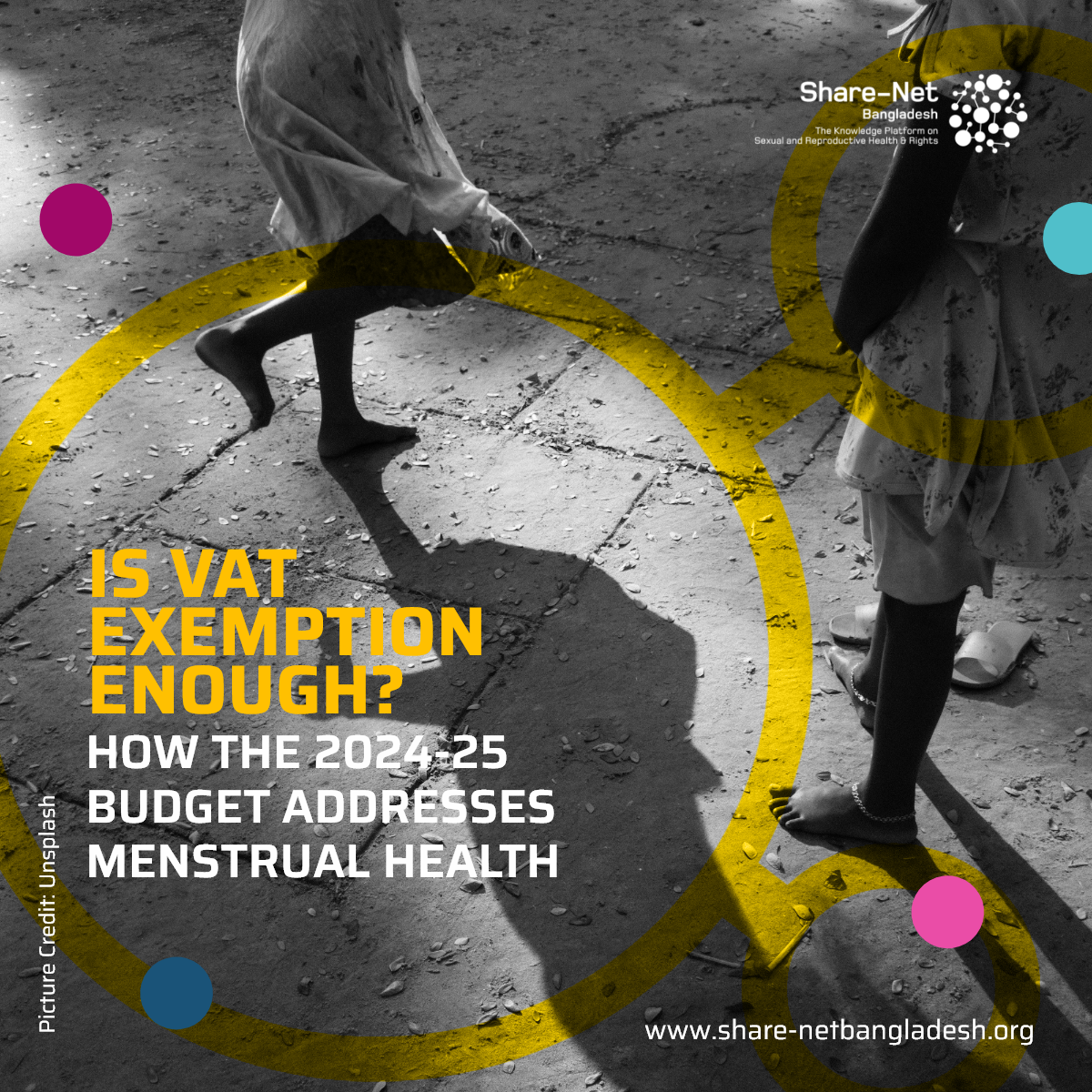Is VAT Exemption Enough? How the 2024-25 Budget Addresses Menstrual Health
In the recently revealed FY2024-25 national budget, the government has continued to exempt VAT and supplementary duty on the import of raw materials required for producing sanitary pads and diapers. This exemption has been in place for two consecutive years, raising the question: has this policy made a difference in menstrual health in Bangladesh?
Menstrual health is a key aspect of sexual and reproductive health and rights (SRHR), yet “period poverty” remains a silent crisis in the country. Period poverty refers to the lack of access to safe menstrual products, hygiene education, and adequate sanitation facilities. According to a recent survey by Plan International Bangladesh, 88.7% of women in rural areas, particularly in Bhola and Satkhira districts, still use old cloth to manage their periods. Many lack access to affordable sanitary products, mainly due to the long distances to pharmacies and inadequate sanitation facilities in schools.
While the VAT exemption has been a step in the right direction, the reality is that sanitary pads remain unaffordable for many. With prices ranging from Tk 55 to Tk 500, they are out of reach for marginalised communities, especially when the average allocation for reproductive health in the national budget remains under Tk 50 per month per person. These figures raise a critical question: if sanitary pads are still unaffordable despite tax breaks, how effective has the VAT exemption been in addressing period poverty?
Moreover, there is limited research on the broader aspects of menstrual health in Bangladesh. Most studies focus on adolescent girls, leaving out working women, transgender individuals, and non-binary people who also experience period poverty. The most recent National Hygiene Survey was conducted in 2018, and since then, little comprehensive data has emerged to assess the countrywide impact of initiatives like the VAT exemption.
One positive initiative is the Strengthening Women’s Ability for Productive New Opportunities (SWAPNO) project by the UNDP, which has empowered rural women in Kurigram to produce and sell sanitary pads. However, the reach of such projects is still limited. Of the 51 menstrual health interventions implemented across 27 districts in recent years, only 36% focused on product distribution, and just 22% on menstrual product development. These efforts need to be scaled up to make a tangible difference.
Menstrual health also remains heavily stigmatised. A baseline survey revealed that over 81% of mothers still believe menstruation is the flow of impure blood. This stigma affects girls’ education and social lives, contributing to school absenteeism and limiting their opportunities. Policy reform is essential to address these deep-rooted issues, yet few policy documents aside from the National Menstrual Hygiene Strategy 2021 mention menstrual health.
The Centre for Policy Dialogue (CPD) has recommended that the total tax on imported raw materials for sanitary napkins be reduced to zero, while taxes on imported pads should be lowered to 31.93% in the next fiscal year. These reforms could make menstrual products more affordable and accessible, but more investment is needed to address the root causes of period poverty.
Menstrual health is a fundamental part of SRHR, and the government must act swiftly to ensure that budgetary allocations are aligned with the needs of menstruators across the country. Reducing period poverty requires not just tax breaks, but comprehensive strategies, including better access to sanitation facilities, increased investment in menstrual education, and efforts to normalise menstruation in society.
Source: The Daily Star
Picture Credit: Unsplash


